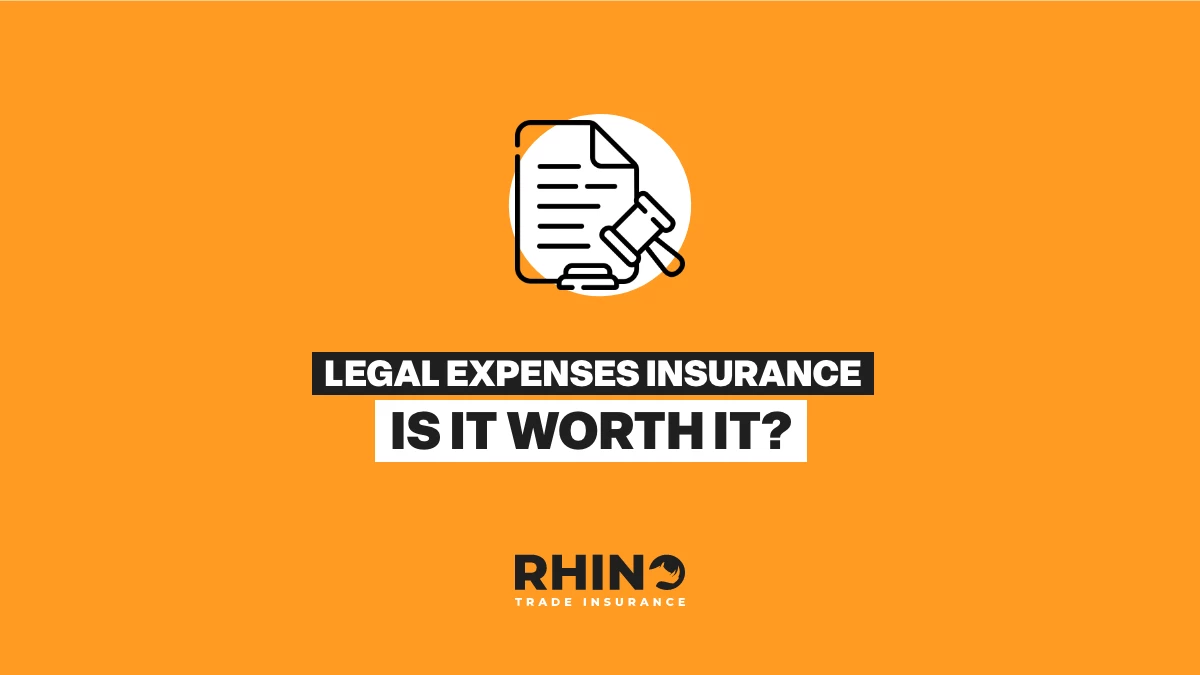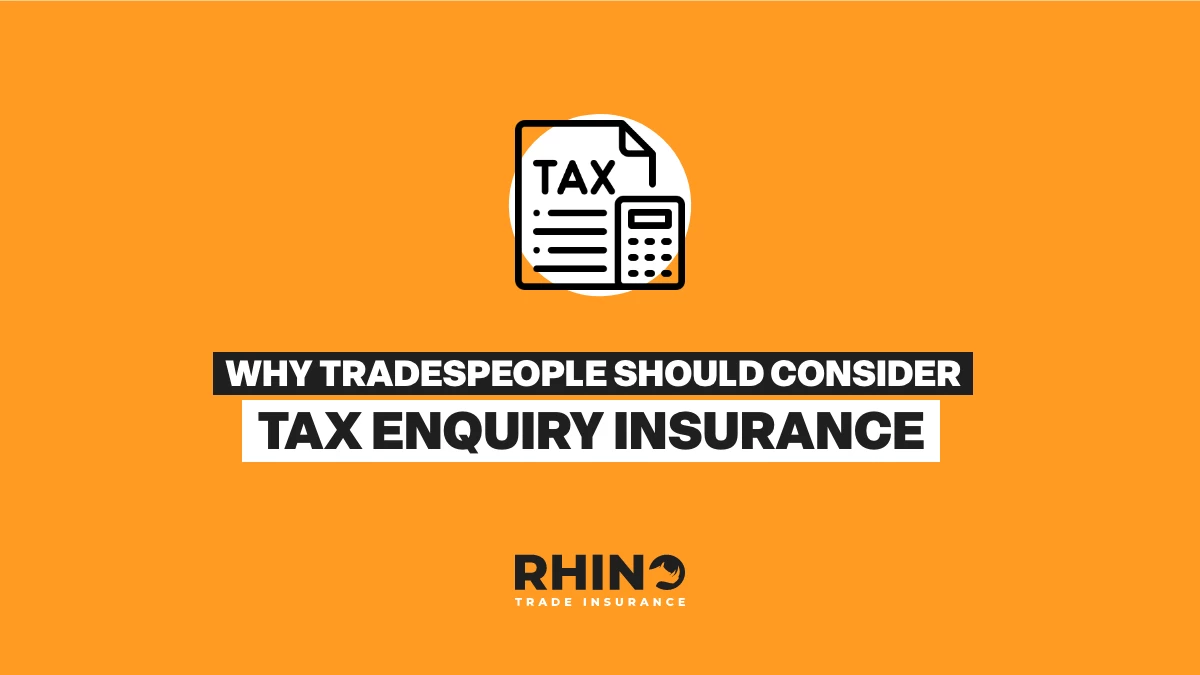
Legal Expenses Insurance – Is it Worth It?
Legal Expenses Insurance for tradespeople explained—what it covers, when you might need it, and how it protects against costly legal fees.
Having the right level of insurance in the UK is imperative to surviving the various risks attached to the trade industry. One form of trade insurance that IS compulsory is Employers' Liability Insurance.
Most businesses don't understand the importance of this policy and why displaying your documentation is a legal necessity. Ensuring the livelihood of your business and your employees is of the utmost importance. Let's explore what you need to know about Employers' Liability Insurance and why showing your certificate is vital.
As a trade business in the UK, you are legally obliged to hold Employers' Liability Insurance. This will cover your back if a claim arises from an employee who has been working on a project set by you and either injured themselves or fallen ill because of that work. Some examples could include falling from a ladder, injury from a power tool or illness due to being exposed to chemicals.
If a scenario arises where an employee makes a claim, your insurance will get to work and protect you financially, covering any legal costs and compensation fees. Ensure you have the right level of cover in place for your business, and please do not consider avoiding it. Failure to properly insure your business and its staff members can result in fines of up to £2,500 every day you don't have a policy.
This is shown in the 1969 Employers' Liability (Compulsory Insurance) Act. Every business in the UK has to have at least £5 million in coverage for their Employers' Liability Insurance.
Rhino can offer up to £10 million in cover for Employers' Liability.
The Rhino team regularly sees tradesmen and women adding Employers' Liability cover to their Public Liability Insurance. From a business perspective, they go hand-in-hand, though they are somewhat different as policies.
Although not a legal requirement, Public Liability Insurance is a business-critical policy. It serves to protect your business should you, or an employee, cause damage to a property, injure a member of the public or cause accidental death.
Employers Liability Insurance, on the other hand, is a legal requirement for all businesses that employ members of staff. It covers your business against a claim should an employee become injured or ill whilst undertaking work for you.
Here at Rhino, we try to remove the insurance jargon and make it as straightforward as possible for you to understand exactly what each policy means. After all, it's imperative that you understand what protection your business has.
Find out more about Employers' Liability Protection from our blog here.
How to obtain an employer's liability certificate
When your business takes out Employers Liability Insurance with Rhino, we will send your policy documents, including your Employers Liability certificate, via email. You can access all policy documentation via your account area here.
For any legislative visits to your company, this certificate will prove you are sufficiently covered to have employees working for you. On the document, you can see the level of cover taken out. Always remember to showcase the certificate in your work environment, as this is a legal requirement.
How to prove you have Employers' Liability Insurance
As you are legally required to hold Employers' Liability Insurance if you hire any staff, you must display your insurance policy document at all times so that your team members can see it. If you would rather not share a physical copy, you can share a digital version via your company's shared drive or online HR area.
You could be subject to a fine if you refuse to take out this insurance or fail to adequately display it. Without this insurance, you can face fines of up to £2,500 per day.
Save yourself the hassle and agro and quickly print out your policy certificate, frame it and place it in a hallway or on a notice board in your work unit. It ticks one more box and covers your back if you ever get a visit. You may also wish to share the details of the following:
Just remember, the points listed above aren't legally necessary, so it's entirely up to you as a business owner whether you share this information. Our thoughts, there's no harm in doing so.
Do you need to keep old certificates?
You don't need to keep your old policy certificates; however, we cannot tell you how to run your business. Keeping them for future reference can also be a good idea. Occasionally, current and former employees could submit a claim if they suffered an injury or illness. Having the certified proof available from whenever the proposed incident occurred would be a great position to be in. Remember, though, that some policies have a time limit for when you can make a claim.
For more information on Employers' Liability Insurance and how the team at Rhino Trade Insurance can help your trade business, find out more on our website or read about our policies and their benefits on our blog.
Whether you are looking to sort your Employers' Liability Insurance or simply checking out your trade insurance options, the team at Rhino Trade Insurance can see you on the right path. We offer affordable cover that can protect almost every avenue of your company, from Public Liability to Tool protection, Income cover and more.
Simply call our team today on 0116 243 7904. They are available six days a week to answer any of your questions or nip over to our handy website and get a price via our quick online shop.
Legal Expenses Insurance for tradespeople explained—what it covers, when you might need it, and how it protects against costly legal fees.
Worried about a tax investigation? With HMRC cracking down in 2025, Tax Enquiry Insurance from Rhino gives UK tradespeople expert protection and peace of mind.
Rhino Trade Insurance CEO Troy Stevens joins industry leaders at the House of Commons to discuss the rising issue of tool theft—highlighting its impact on UK tradespeople and the importance of awareness and protection.
Tell us your trade and get a tailored insurance quote for your business in seconds
Our team of experts are available to talk to Mon-Fri 08.30-17.30 and Sat 10.00-14.00

